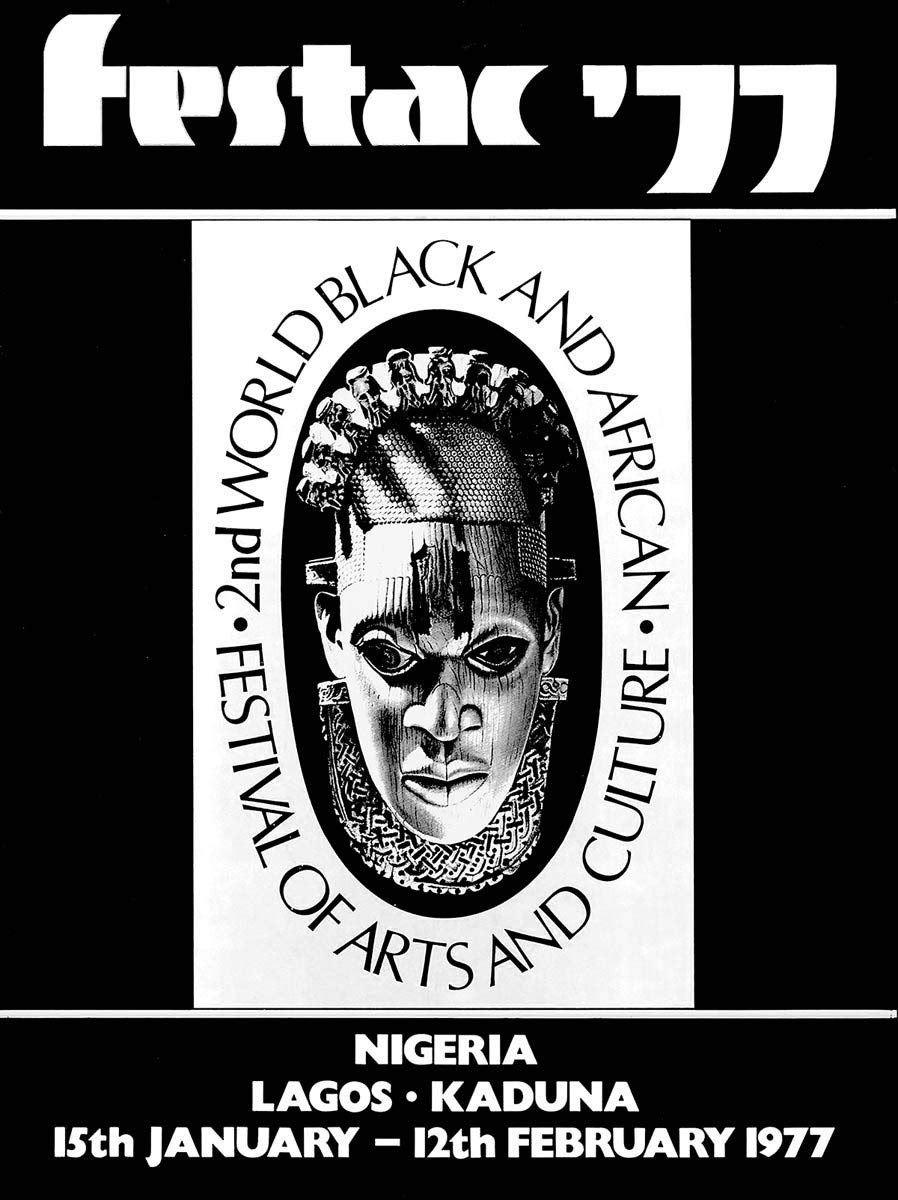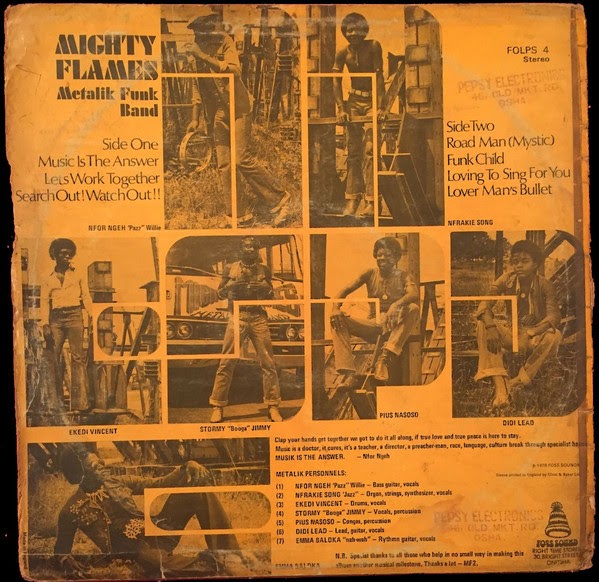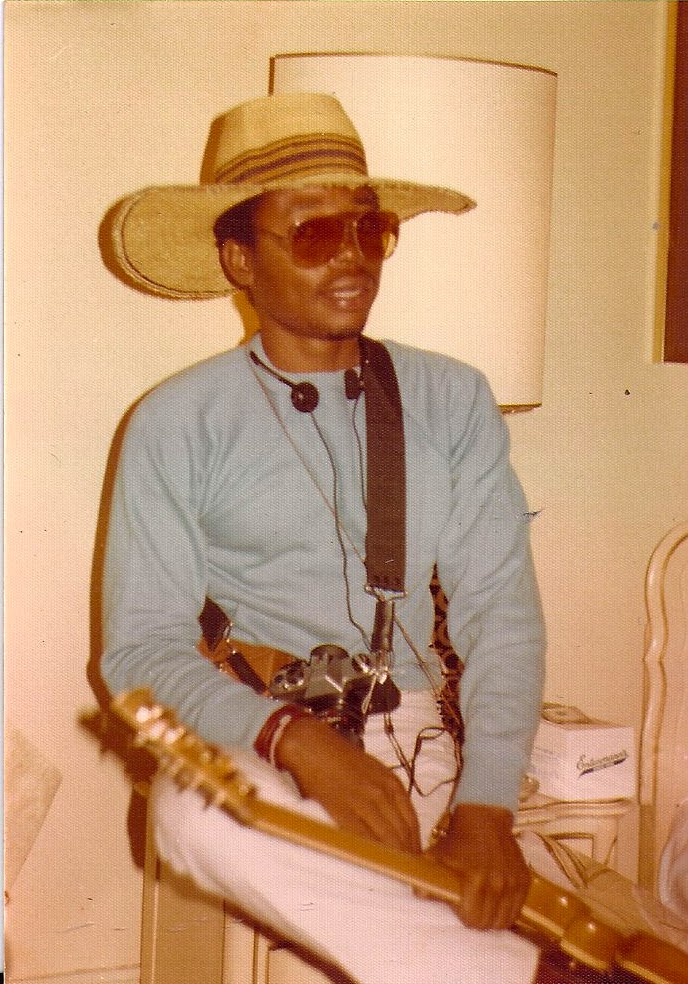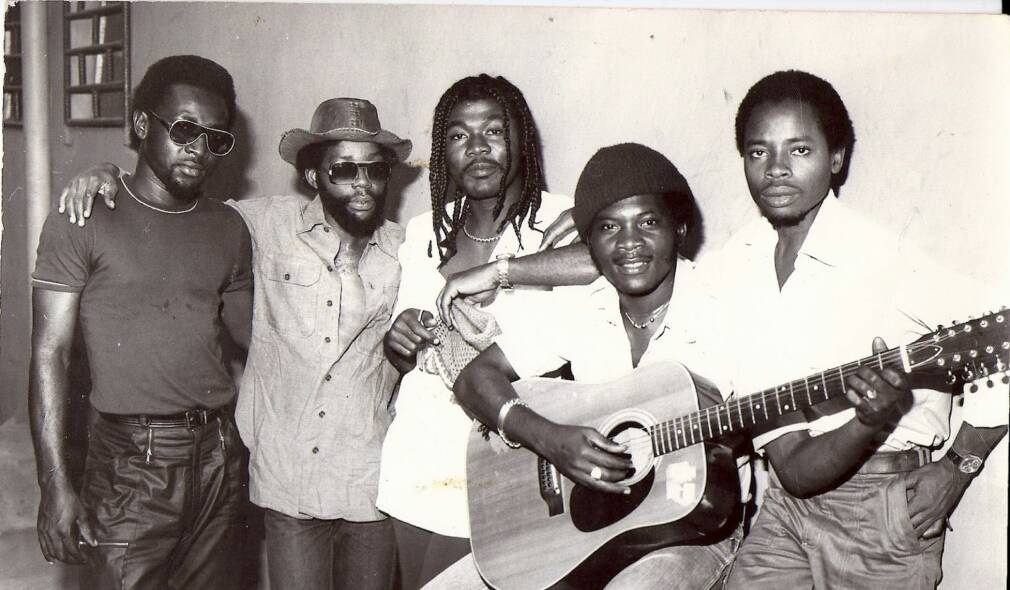Musicians have always travelled. One could argue that music is largely an attempt to travel; transporting some form of emotion elegantly through the arrangement of musical sounds. Ngeh N’for Williams (Willy N’for) was born on the 24th of February 1956 in Limbe in the South West region of Cameroon. Willy had all the necessary ingredients to want to travel, a troubled past (he lost his mom very early), a complicated life (he could not get on with his dad and his step-mom), dexterity with the bass guitar, and an appetite for travelling on the interstellar grooves of funk, with dreams of jamming with giants and stars in stadia and palaces frequented by high-class people.
First Movement (Cameroon to Nigeria)
Music quickly became his mode of escape. He started avidly listening to funk and jazz rock luminaries like Bootsy Collins, Jaco Pastorious and Stanley Clark, playing with local bands in his area, with young musicians, like Vincent Ekedi (future member of Mighty Flames). They practiced and played at every opportunity, perfecting the grooves, the breaks, the changes, dreaming of green pastures, bigger cities, and brighter lights. Traveling on the interstellar grooves of their funk, they dreamed of jamming with giants and stars in stadia and palaces frequented by high-class people.
One bright morning, he packed his bass, threw a few clothes in a bag and headed to the Cameroonian Nigerian border. They caught a bus to Ekok and from Ekom and walked across the border into Cross Rivers state on his way to Onitsha.
He was already 20 years old when he got off the bus and Festac ’77, also known as the Second World Black and African Festival of Arts and Culture (the first was in Dakar, 1966), was a major international festival held in Lagos, Nigeria, from 15 January 1977 to 12 February 1977. The month-long event celebrated African culture and showcased African music, fine art, literature, drama, dance and religion to the world. About 16,000 participants, representing 56 African nations and countries of the African Diaspora, performed at the event. Artists who performed at the festival included Stevie Wonder from United States, Gilberto Gil from Brazil, Bembeya Jazz National from Guinea, Mighty Sparrow from Grenada, Les Ballets Africains, South African Miriam Makeba, and Franco Luambo Makiadi. At the time it was held, it was the largest pan-African gathering to ever take place.

For any budding African musician in the mid-seventies, Nigeria was the place to be. “We left Cameroon without any contacts in Nigeria, we were young and to us it was a big adventure. We had heard about the upcoming FESTAC Arts Festival and we felt we needed to get involved. The first band we played in was, Pentagon Funk Band, a band sponsored by the 5th Brigade in Port Harcourt. From there we moved to Onitsha to sign with Right Time Stores (RTS), we recorded Sweet Love (RTLPS 011) as The Mighty Flames. The sessions were at Decca Studios at Akoka area of Lagos, they had a 16 track analog recording unit. It was like jazz, you had to be on top of your game as a musician, you couldn’t erase the guitar lines or drums and redo it like with digital, one person slips up, you start all over again… So we rehearsed and rehearsed and then we went down and recorded the takes”. The line-up was Vincent Ekedi-Drums, Stormy Jimmy-Vocals, Percussion, George Achini-Lead Guitar/Vocals, Emma “Wah Wah” Baloka-Rhythm Guitar, Frankie Song-Organ, Piano, Tamborine, Vocals, Ngeh Willie N’for-Bass, Rhythm Guitars, Vocals, Didi Lead-Lead Guitar).
In the first few years of the Nigerian sojourn, Willy was based in Onitsha, in the east of Nigeria, cutting records for Right Time Store (and her sister label, Foss Sounds). Most of the gigs were down in the East (Port Harcourt, Aba, Onitsha axis). In 1978, The Mighty Flames released another LP titled, Metallik Funk Band (FOLPS 4) on Foss Sounds.

This was the era of boogie, funk, and disco. Slave, Shalamar, Chic and Cameo, informed the direction of the music they enjoyed and recorded. Nevertheless, their version of boogie was rawer, more direct, less processed. They unknowingly carved out a sub-genre, “afro-funk (from Nigeria)”. Records from this genre are scarce, (due to small production runs; 300-500) and as such, very sought after by Parisian DJs and vinyl collectors from all over. I know this from collecting and trading African vintage records from my instagram handle, @livingstonestudio. The scarcity and demand for the records has also led to several labels re-issuing records legally through the original artistes or through dodgy arrangements for a significant part.
A third album released in 1979 and included in this compilation, has a slightly different lineup, The Mighty Flames Willie N’for (RTLPS 019), does not include his Mighty Flames co-founders, Vincent Ekedi and Frankie Song. It appears this was Willy’s way of saying, “I am the Mighty Flames and the Mighty Flames is me“. The back of the LP also has “The Mighty Flames led by Willie N’for” inscribed. The LP is an amazing afro-funk album and showcases his playing and much more. The line-up includes George “Hardest” Atomba – Drums, Lebarty Felix – Guitar/Keyboards, Pius Nasoso Ebune – Percussion/Congas, D.D. Lead – Guitar/Voice (Happiness), Clement Djimogne – Voice/Percussion, N’for Willie ‘N’ – Percussion, Lead Voice, Bazz Guitar, Keyboard, Voices.
On Clement Djimogne’s solo album, Money Makes Man Mad, released on Nigerphone in 1979, Willy is credited as arranger, backing vocalist and bass player. It appears that it was shortly after this period he moved to Lagos.
Second Movement (Onitsha to Lagos)
However, the next personal project, Feel So Fine, a nod to Grover Washington’s Feels So Good, indicated an interest in the bass taking the fore. It’s possible that this release was the result of an arrangement with the producer, Mike O. Dee, as this was the only known release of Cornerstone Records. The record (CT 3001) released in 1981, saw a reunion with the former band members of the Mighty Flames. But this was a solo affair; he had fully evolved into a solo artist, there is no mention of The Mighty Flames. He sings, plays bass, guitars and shares production duties with Mike O. Dee. He is involved in all the facets of the process, fashioning his new sound. The sound is polished and rife with bass effects. Three tracks from this release are featured on our Willy N’for compilation, Movements (Boogie Down in Africa).
His last solo release, My Turn (DWAPS 2174) was produced by Frank Ikpefuran for Decca West Africa, Frank was a founder and drummer of The Apples whose amazing album, Mind Twister was produced for EMI by the master, Odion Iruoje and later reissued on Odion Livingstone (ODLIV 003). My Turn also featured Vincent Ekedi and Frankie Song, original members of the Mighty Flames. “I can’t remember how we met, but it was common for me to pop around studios, to hear different projects and speak to musicians, so we probably met from one of those events. I was then an A&R man and producer for Decca, so musicians brought projects to me. He came in with a demo tape, which I listened to and felt happy to produce. I told him to organize his band and I booked the studios. The only musician I invited to the session was Kiki Gyan who was in town with Osibisa. He was a sweet guy who was ready for the big stage, he spoke about leaving to further his career and he left town soon after but we stayed in touch. In fact, he sent me a parcel of goodies when he was in the US touring. I remember him as a talented musician and a generous and humble human being”.
In between these releases with the Mighty Flames, Willy had evolved into a highly sought-after session man. He played on several albums that with time have become highly collectible records. He also joined The Groovies, Bongo Ikwue’s backing band, in 1982, touring and recording with them. “Willy N’for was already a big name, when he replaced Dele Ajiboye. I believe Raoul Soji, our French-speaking guitarist, is the one who brought him. But, we knew about him already and were very excited to hear of his interest. He didn’t really need to audition… But he came and we jammed”. “We toured heavily playing universities and stadia across Nigeria, Ibadan, Lagos, Maiduguri, Warri, Kano. We played everywhere. There was a concert we played at Tafawa Balewa, with all the top artistes, Brother Johnsons and the Fatback Family were there. Willy was on another level with his slapping technique, Larry Johnson came backstage after our performance to shake his hand. That was how good he was”.
“I remember him as a hard worker. He had an amazing work rate, he went on and on till he felt everybody had arrived at the level. He brought a whole new energy to the band and we responded by raising our game”. My favourite albums he played on from this time are The Groovies, Say A Little Prayer; Sunny Okosuns’, Togetherness, Chuks Ejelonu, Let’s Make A Memory, Emma Dorgu’s Girl.
Third Movement (Lagos to Paris)
“Growing up in Cameroon, we didn’t just learn the lyrics of a song, but also the bass-lines… Bass playing is very highly considered there..” Cameroon has a tradition of great bass players, names such as Jean Dikoto Mandengue (of Osibisa fame), Vicky Edimo (Black Blood, Manu Dibango, Gibson Brothers), Alhadji Toure, Armand Sabal Lecco, Felix Sabal Lecco, Raymond Doumbe, Guy Nsangue, Etienne Mbappe, Francis Mbappe, Richard Nguini, Jay Lou Ava, Richard Bona… In Nigeria, some of the best session bass players were Cameroonian; Basil Barap, Edjo’o Jacques Racine, George Achini, and Celestin Nyam are just a few of the outstanding musicians whose involvement could seriously raise the level of a session. Willy Ngeh N’for was at the top of that list. They didn’t just play the song, they played the music of the song, their knowledge of music and proficiency on several instruments made them great producers and people like Basil Barap, and Willy N’for went on to produce some great records.
His global recognition suffered a little as most Nigerian records were not formally distributed outside Nigeria/West Africa. But his move to Paris brought him to the world stage, where he quickly became one of the hottest African musicians on the World Music circuit, playing with Mory Kante (for whom he played on three albums and enjoyed a global hit, Yeke Yeke which took them touring around the world), Tulio de Piscopo, David Sancious, Charlelie Couture, Mbilia Bel (with whom he toured Southern Africa), Kante Manfila, Manu Dibango, Aicha Kone and a host of others.
World music (afro pop) was the big thing so he found himself playing more in this vein. As a solo project he formed Ghetto Blaster with musicians that, for the most part, had also passed through Nigeria (Kiala Nzavotunga, Frankie Song, Udoh Essiet). The sound they played was in between afrobeat and reggae but it lacked the heat of the Nigerian releases. They toured a bit after the release of People on Blackframe Production. But the heat of the earlier albums was not there. My favourite album from this period is probably his feature on Tony Allen’s Afrobeat Express released in 1989.
World music brought him session work and stadia tour dates around the world, his dreams as a 19 year old had come alive, with twists and turns. But it is his Nigerian albums that have cemented his name in the sands of time for the nerd collector and it is these works that we turn to when the true north is shyer than usual. The clarity of a tight bassline underlined by the calculated funkiness of an afro funk drum break can reveal in a few notes, a lot about the transient beauty of life and the importance of loving the life you live or moving around musically or physically until you find it or something a bit like it. In the words of his song, “Do your thing”; “don’t give it up, life is what you make it“…!!!
He died on the 28th of February 1998 of cancer and is survived by his three children. Marie, Sunday and Wiya N’for.
The Willy N’for compilation, Movements; Boogie Down In Africa on Livingstone Studio is available from all good stores.





